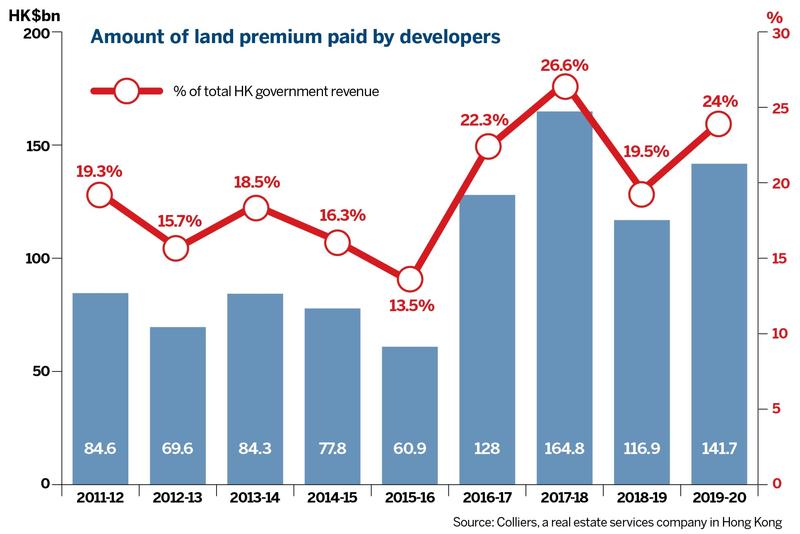Can developer land banks be unlocked?

Extreme inequality
The half that owns property is especially lucky. Hong Kong is one of the most unequal societies in the world, with the richest 10 percent of households earning 44 times that of the poorest, a fact confirmed by a government report in 2017. Most of the territory is wooded parkland, shrubland and wetlands watched hawkishly by activist citizens, environmentalists, and other non-governmental organizations. Scarcity of land exacerbates the housing shortage and widening income gap.
Property values have soared 262 percent (162 percent after adjusted for inflation) over the last 12 years. The ultraconservative banking regime imposes a term limit on the age of the borrower and a loan threshold on the age of the property. Younger borrowers get longer repayment terms, and new properties get higher loans.
Housing reflects and exemplifies the wealth inequity, said Lau Chun-kong, managing director of Valuation & Advisory Services at Colliers. "With better income and job security, elites as well as officials at the top social hierarchy are in a better position to own a house and take out a mortgage than average Hong Kong residents." The rest line up for subsidized public housing. The public rental housing (PRH) program is oversubscribed and undersupplied.

























